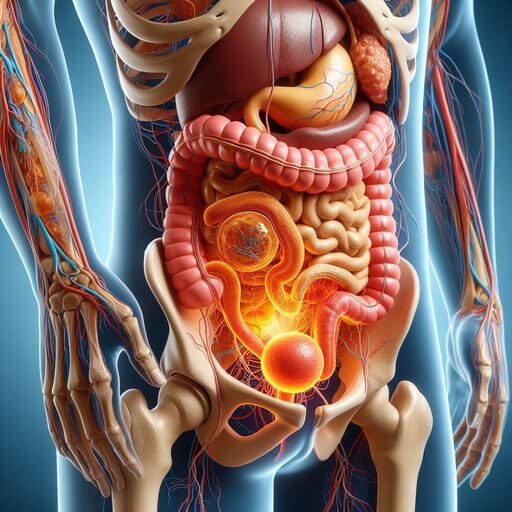Related Conditions of Abdominal Pain
Related Conditions of Abdominal Pain
Abdominal pain can be caused by a variety of factors, including digestive issues, muscle spasms, and injuries. Here are some related conditions that may be associated with abdominal pain:
1. Irritable Bowel Syndrome (IBS): IBS is a functional gastrointestinal disorder that affects the large intestine. It can cause abdominal pain, bloating, gas, and changes in bowel habits.
2. Inflammatory Bowel Disease (IBD): IBD is a chronic inflammatory condition that affects the digestive system. It can cause abdominal pain, diarrhea, and fatigue.
3. Gastroenteritis: Also known as stomach flu, gastroenteritis is an infection of the stomach and intestines. It can cause abdominal pain, nausea, vomiting, and diarrhea.
4. Hernia: A hernia occurs when part of the intestine or other organs bulge out of the abdomen through a weak spot in the muscles. This type of hernia can cause abdominal pain, nausea, and vomiting.
5. Appendicitis: Appendicitis is an inflammation of the appendix, which is a small tube-like organ attached to the large intestine. It can cause abdominal pain, fever, and nausea.
6. Pancreatitis: Pancreatitis is an inflammation of the pancreas, which produces digestive enzymes and insulin. It can cause abdominal pain, nausea, vomiting, and fever.
7. Peptic Ulcers: Peptic ulcers are open sores that form on the lining of the stomach or small intestine. They can cause abdominal pain, nausea, and vomiting.
8. Gallstones: Gallstones are small, hard stones that form in the gallbladder. They can cause abdominal pain, nausea, and vomiting.
9. Endometriosis: Endometriosis is a condition in which tissue from the uterus grows outside of the uterus, often on the abdominal walls or ovaries. It can cause abdominal pain, bloating, and irregular menstrual periods.
10. Diverticulitis: Diverticulitis is an inflammation of the pouches in the colon that help absorb water from food. It can cause abdominal pain, nausea, vomiting, and fever.
Related Conditions of Abdominal Pain
It’s important to seek medical attention if you experience severe or persistent abdominal pain. Your healthcare provider may be able to identify the underlying cause of your abdominal pain and recommend appropriate treatment options to manage related conditions like IBS, IBD, gastroenteritis, hernia, appendicitis, pancreatitis, peptic ulcers, gallstones, endometriosis, and diverticulitis.
Related Conditions of Abdominal Pain

